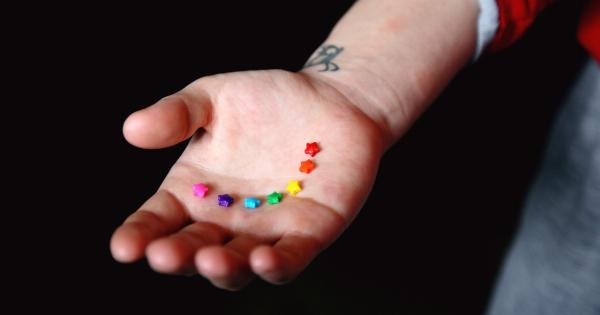Autism spectrum disorder (ASD) is a neurodevelopmental disorder characterized by difficulties in social interaction, communication, and restrictive or repetitive behavior patterns.
It affects individuals across all racial, ethnic, and socioeconomic backgrounds, with a prevalence rate of approximately 1 in 54 children in the United States. While there is currently no cure for autism, various experimental treatments have shown promise in enhancing sociality and improving the quality of life for children with autism.
1. Early Intensive Behavioral Intervention (EIBI)
EIBI is a comprehensive treatment model that involves structured and intensive behavioral therapy for young children with autism.
This evidence-based intervention typically begins during the toddler years and aims to enhance social and communication skills, reduce problematic behaviors, and improve overall cognitive functioning. EIBI is often delivered on a one-to-one basis by trained therapists and is tailored to the specific needs of each child.
2. Social Skills Training
Children with autism often struggle with understanding and applying social skills in everyday situations.
Social skills training programs aim to teach these skills explicitly through various techniques such as role-playing, video modeling, and structured group activities. These programs focus on enhancing skills such as initiating conversations, maintaining eye contact, and recognizing social cues, thereby fostering improved social interactions and relationships.
3. Pivotal Response Treatment (PRT)
PRT is a naturalistic, play-based intervention that targets pivotal areas of development believed to have cascading effects on other skills in children with autism.
This treatment approach focuses on motivating the child by following their interests and providing opportunities for them to make choices and take initiative. PRT aims to enhance social communication and promote generalization of skills outside of structured therapy sessions.
4. Cognitive Behavioral Therapy (CBT)
Cognitive Behavioral Therapy is a widely recognized therapeutic approach that has been adapted for individuals with autism.
CBT aims to help children identify and replace maladaptive thoughts and behaviors, teaching them emotional regulation strategies and promoting adaptive social skills. By addressing cognitive distortions and teaching coping mechanisms, CBT can enhance social understanding and improve social interactions.
5. Animal-Assisted Therapy (AAT)
Animal-assisted therapy involves interactions between the child and trained animals, such as dogs or horses, under the supervision of professionals.
This experiential therapy has been shown to increase social engagement, improve communication skills, and reduce stress and anxiety levels in children with autism. The involvement of animals can create a non-judgmental and supportive environment, helping children with autism feel more comfortable and motivated to interact.
6. Virtual Reality (VR) Therapy
Virtual Reality therapy utilizes immersive digital environments to simulate real-life scenarios and provide individuals with autism opportunities for experiential learning and skill development.
VR therapy can help children practice social interactions, such as initiating conversations or interpreting emotions, within a controlled and predictable setting. By gradually exposing children to different social situations, this technology-based therapy can enhance social skills and reduce anxiety related to real-world social encounters.
7. Transcranial Magnetic Stimulation (TMS)
TMS is a non-invasive brain stimulation technique that uses magnetic fields to target specific areas of the brain.
Emerging research suggests that TMS may have potential for improving social functioning in individuals with autism by modulating brain activity and connectivity. However, further studies are needed to fully understand the effectiveness and long-term effects of TMS as a treatment for autism.
8. Nutritional Interventions
Some children with autism may have nutrient imbalances or food sensitivities that could affect their behavior and overall well-being.
Nutritional interventions involve dietary modifications, such as gluten-free or casein-free diets, and the use of supplements like omega-3 fatty acids or probiotics. While research on the efficacy of nutritional interventions for autism is limited, some studies indicate potential benefits in reducing symptoms and improving social behaviors.
9. Mindfulness-Based Interventions
Mindfulness-based interventions, including mindfulness meditation and yoga, have shown promise in reducing anxiety, improving attention, and enhancing emotional regulation in children with autism.
By cultivating present-moment awareness and non-judgmental acceptance, these practices can help children with autism better understand and manage their emotions, leading to improved social interactions and overall well-being.
10. Music Therapy
Music therapy utilizes the therapeutic aspects of music as a means of enhancing social skills and improving emotional expression in children with autism.
Through the use of instruments, singing, and rhythmic activities, music therapy can foster social interaction, communication, and self-expression. The rhythmic and structured nature of music can provide children with autism a predictable and enjoyable medium for engaging with others.






























